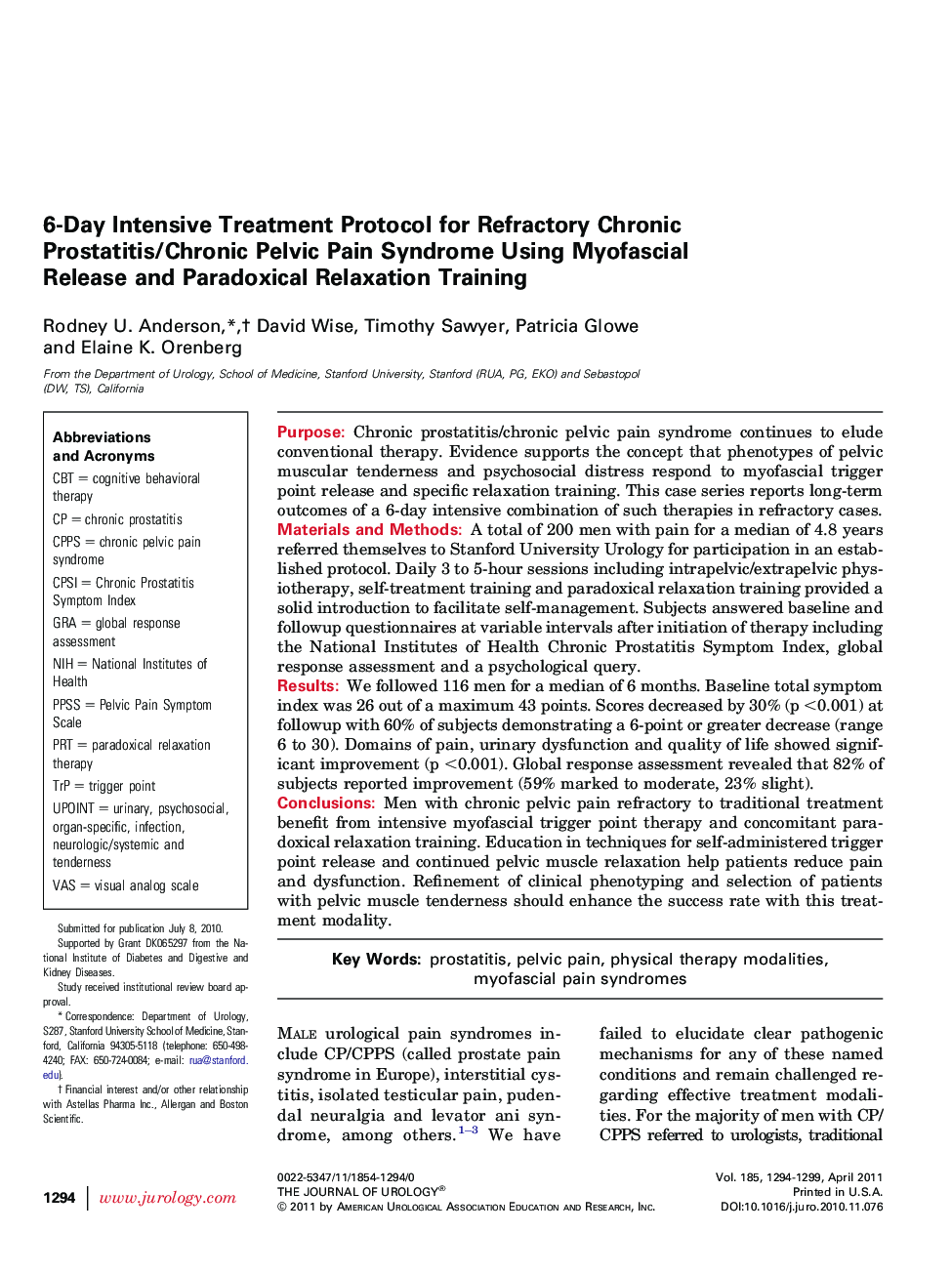| کد مقاله | کد نشریه | سال انتشار | مقاله انگلیسی | نسخه تمام متن |
|---|---|---|---|---|
| 3870673 | 1598951 | 2011 | 6 صفحه PDF | دانلود رایگان |

PurposeChronic prostatitis/chronic pelvic pain syndrome continues to elude conventional therapy. Evidence supports the concept that phenotypes of pelvic muscular tenderness and psychosocial distress respond to myofascial trigger point release and specific relaxation training. This case series reports long-term outcomes of a 6-day intensive combination of such therapies in refractory cases.Materials and MethodsA total of 200 men with pain for a median of 4.8 years referred themselves to Stanford University Urology for participation in an established protocol. Daily 3 to 5-hour sessions including intrapelvic/extrapelvic physiotherapy, self-treatment training and paradoxical relaxation training provided a solid introduction to facilitate self-management. Subjects answered baseline and followup questionnaires at variable intervals after initiation of therapy including the National Institutes of Health Chronic Prostatitis Symptom Index, global response assessment and a psychological query.ResultsWe followed 116 men for a median of 6 months. Baseline total symptom index was 26 out of a maximum 43 points. Scores decreased by 30% (p <0.001) at followup with 60% of subjects demonstrating a 6-point or greater decrease (range 6 to 30). Domains of pain, urinary dysfunction and quality of life showed significant improvement (p <0.001). Global response assessment revealed that 82% of subjects reported improvement (59% marked to moderate, 23% slight).ConclusionsMen with chronic pelvic pain refractory to traditional treatment benefit from intensive myofascial trigger point therapy and concomitant paradoxical relaxation training. Education in techniques for self-administered trigger point release and continued pelvic muscle relaxation help patients reduce pain and dysfunction. Refinement of clinical phenotyping and selection of patients with pelvic muscle tenderness should enhance the success rate with this treatment modality.
Journal: The Journal of Urology - Volume 185, Issue 4, April 2011, Pages 1294–1299